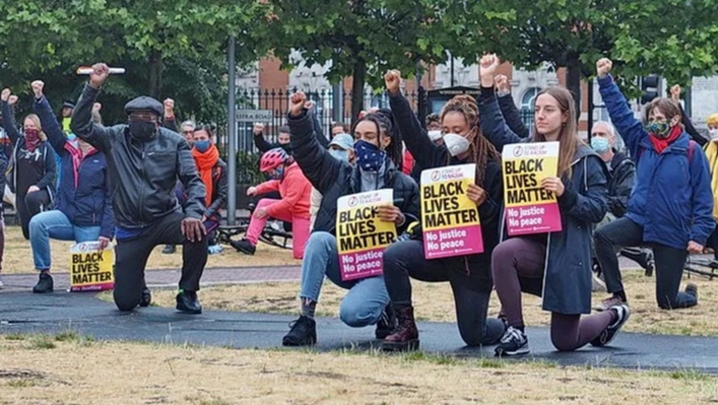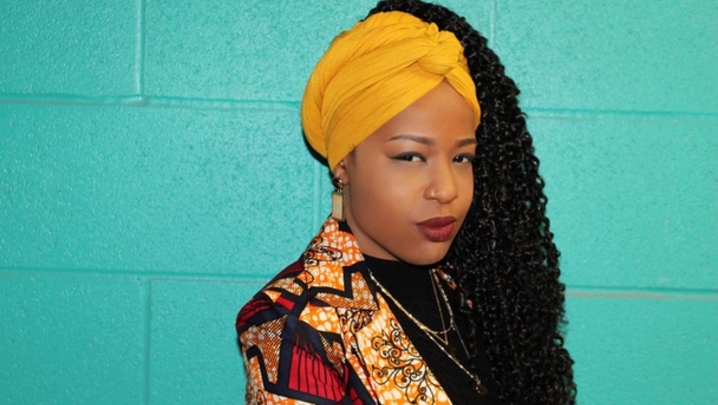Are the UK public service broadcasters facing a fight for their lives? A joint RTS and Media Society panel scrutinises the evidence
On the eve of the publication of Ofcom’s much-anticipated review of public service broadcasting (PSB), big names from the BBC and Channel 4, past and present, discussed whether British broadcasting was in crisis.
Ofcom warned that PSB is unlikely to survive in the online world without an overhaul of broadcasting regulation. It said that the public service broadcasters – the BBC, ITV, STV, Channel 4, S4C and Channel 5 – could also fulfil their obligations online, and that the public service remit could be extended to the big streamers.
Ex-controller of Radio 4 Mark Damazer, however, argued that PSB “is alive and kicking and attempts to write it out of the script in favour of either the ideology of pure market forces or [because] it’s ‘out of touch with the people’ have been thoroughly disproved this year.”
Damazer was speaking at the first of two Steve Hewlett Scholarship events, hosted by the RTS and the Media Society in early December, and chaired by former BBC and ITV journalist John Stapleton.
In November, culture secretary Oliver Dowden said it was time to “ask really profound questions” about the role of public service broadcasters in the digital age, adding: “And, indeed, whether we need them at all.” This sounded “ominous”, suggested Stapleton.
Damazer responded: “PSB matters for what it’s producing now, what it means for Britain’s cultural industries now, what it means for bringing the nation together on big occasions: Olympics, royal weddings, commemorations of the world wars, local radio, information, news, drama, the lot.
“So, when [Dowden] asks these ‘profound questions’, and it’s quite right that he asks them, if he’s open-minded about the evidence that he’s examining and doesn’t let any ideological predisposition contaminate the results, I’m perfectly confident that all aspects of PSB, not just the BBC, have a pretty good story to tell.”
Looking back over a year dominated by the coronavirus pandemic, Channel 4 CEO Alex Mahon said: “It’s been a truly shocking and horrendous year on every front, but what is great is that the public have relied on, valued and cared about public service broadcasters, perhaps more than they have done in decades.
“They’ve realised that they need us for informing, connecting and entertaining them in this dreadful time.”
Mahon argued that Channel 4’s model of being publicly owned but commercially funded had worked in 2020 – and that privatisation, “on the table”, according to culture secretary Oliver Dowden, was unnecessary. “We had ratings up through the roof and revenues down through the floor, but we made all our cuts, we made them really fast, and we’re on track to book the highest surplus in the history of the organisation,” she said. “And we’re up on ratings, share and digital.… The flexibility of the model could not be more proven than it has been this year.”
Former BBC Director-General Greg Dyke argued that “the disappearance of Dominic Cummings” was “good news for public service broadcasting and the BBC. If you read the stuff he’s written and said over the years, he was pretty hostile.” But he also sounded a warning: “The decline in advertising revenue for the commercially funded PSBs could be a bigger [problem]. It won’t happen overnight but it could happen over 10 to 15 years.
“It gets harder and harder to sustain the roots of public service broadcasting if your advertising revenue is in gradual decline.”
Stapleton pointed to Ofcom’s recently released “Annual report on the BBC”, which revealed that only 54% of adults see its news as impartial. Were the panellists worried?
“At times of crisis, impartiality is difficult,” pointed out Dyke. “We’ve just been through one crisis with Brexit and I think Brexit did divide the population. I think it was John Simpson who said years ago that, when Britain is divided that much, the BBC tends to get it in the neck. I’ll be interested to see what the figures look like in a year’s time.”
Damazer said: “I have all kinds of beefs with the BBC news machine and I scream at Channel 4 News virtually every night for one reason or another, but I recognise that I’m getting a quality product from people who really care about accuracy, truth and impartiality.”
Mahon admitted: “We’re living in a kind of post-truth world, our shared identity is being challenged.” Nonetheless, “the growth in the BBC and Channel 4’s news this year has been off the charts…. People want impartial, properly sourced, regulated news – and that’s what all the PSBs here are brilliant at.”
Dyke noted: “If you go anywhere in the world, they think the BBC is the most wonderful [thing] and that every good programme that ever comes out of Britain came from the BBC… they all wish they had it. We’ve got it and we have a Government that, half their time, seems to want to get rid of it. I think it’s time they started valuing it for what it does and what it is.”
Stapleton asked whether licence-fee funding was sustainable. “If anyone invented the licence fee today – to have a television receiver in your home, you’ve got to pay 150-odd pounds – we’d all laugh, but it has survived… significant attempts to get rid of it. I personally wouldn’t die in the ditch for it; I would die in the ditch for public funding for the BBC,” said Dyke.
“I agree with Greg that, if you were inventing it from scratch, you wouldn’t come up with such a bonkers, peculiarly British scheme,” said Mahon. “You’ve got to have something better if you replace [the licence fee], and I haven’t seen something better yet.”
PSB: An upbeat assessment
Audiences may be turning away from the PSB channels in favour of global streaming and online services, but Enders Analysis founder Claire Enders found cause for optimism.
PSB, she said, ‘remains very significant. The share of audience is still extremely large. [It] remains, by far, the largest destination for most people in this country.’
Although broadcast TV viewing ‘has inexorably declined’ thanks to the growth of YouTube and the launch of streamers such as Netflix and Disney+, Enders maintained that PSB viewing has remained ‘pretty robust’ for the over-35s in the face of growing competition.
The Covid-19 outbreak led to an ‘incredible revival and interest in news’ and PSB news services: ‘We know that PSB fulfils an essential mission of information.’
Enders ended her brief presentation on an upbeat note: ‘A year of unprecedented crisis, [and an] existential crisis for PSB has been replaced by a situation in which we can see… some hope that we will all get through this well.’
PSB: The need for prominence
Channel 4 CEO Alex Mahon called for ‘an updated set of regulations’ covering the ‘prominence’ of public service broadcasters.
‘The way content appears on your television is ruled by the 2003 Communications Act and the belief that everything would be reached through an electronic programme guide – that’s not how people find programmes now,’ she said.
‘If we don’t do anything in regulation, it will be too late, because on all those smartphones and flat-screen TV… it’s whoever pays Amazon or LG the most that works out where things appear. We need protection for public service content.’
Report by Matthew Bell. ‘British broadcasting in crisis? The public service broadcasters’ was held on 7 December and produced by Phil Barnes, Rachel Crellin, John Mair and Jo Sampson.




